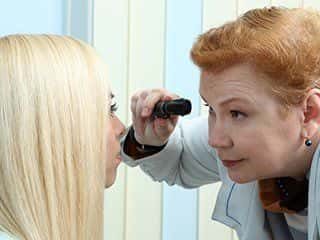
More than 300,000 sports-related concussions occur each year, according to research. Many more concussions result from motor vehicle accidents, falls, and other non-sports related incidents. In addition to causing cognitive difficulties, concussions may result in a cluster of problems called post-concussive vision syndrome. If you have recently experienced a concussion, consult an optometrist for a full vision exam to identify possible problems.
Most Common Symptoms of Post-Concussive Vision Syndrome
A concussion is simply an injury to the brain following some type of blow to the head. In serious cases, this may cause shearing of nerves in the brain or traumatic damage to certain brain areas. If parts of the visual system are impacted, some of the following symptoms may result:
- Double vision. Seeing two versions of the same object is a sign of double vision, which may result from damage to the eyes, eye muscles, or portions of the brain.
- Blurred vision.
- Light sensitivity or sensitivity to glare.
- Difficulty reading, including words “swimming” on the page
- Problems attending to visual information
- Eye strain, even following relatively minor visual tasks
- Headaches after reading or performing other visual tasks
- Problems focusing on objects (also called accommodative dysfunction)
- Difficulty following moving objects
- Impairment in quickly shifting gaze from one point to another
- Loss of a portion of the visual field.
Treatment of Post-Concussive Vision Syndrome
Your optometrist will recommend an individualized treatment program to address your symptoms of post-concussive vision syndrome. This may include corrective lenses to address problems with visual acuity or focusing.
Additionally, your optometrist may recommend vision therapy. Vision therapy is not simply designed to exercise your eye muscles; rather, it involves a series of special exercises supervised by a doctor. These exercises can retrain your eyes to respond differently to visual stimuli. For example, you may practice focusing, viewing objects through special prisms or lenses, using special techniques to track an object with your eyes, or responding to visual stimuli with a particular movement to improve eye-body coordination.
In most cases, vision therapy involves visiting the doctor’s office for 30 to 60 minutes, once or twice per week. Often the eye doctor will recommend that you practice certain exercises at home. This homework gives your eyes additional practice, retraining your eyes and brain to behave as they did before your concussion.
